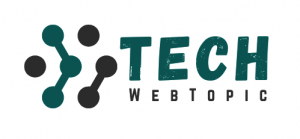Financial institutions are prime targets for cybercriminals due to the sensitive and valuable nature of the data they handle. Among the many cybersecurity threats these institutions face, DNS (Domain Name System) security is often overlooked but critically important. This article delves into the unique challenges financial institutions encounter regarding DNS security and explores effective solutions, highlighting the role of DNS filtering in mitigating risks.
The Importance of DNS Security
DNS is a cornerstone of internet functionality, translating human-readable domain names into IP addresses that computers use to locate each other on networks. Given its fundamental role, DNS is a frequent target for cyberattacks, including DNS spoofing, cache poisoning, and DDoS attacks. For financial institutions, compromising DNS can lead to significant breaches, resulting in data theft, financial loss, and severe reputational damage.
Unique Challenges for Financial Institutions
Financial institutions face several unique challenges in securing their DNS infrastructure:
- High-Value Targets: The sensitive nature of financial data makes these institutions attractive targets for cybercriminals. A successful attack can yield substantial financial rewards or sensitive information that can be sold or exploited.
- Regulatory Compliance: Financial institutions must comply with stringent regulatory requirements such as GDPR, PCI DSS, and various national and international financial regulations. Ensuring DNS security is a critical aspect of maintaining compliance and avoiding hefty penalties.
- Complex IT Environments: Financial institutions often operate complex IT environments with numerous interconnected systems. This complexity can make it difficult to implement and maintain effective DNS security measures across all systems and networks.
- Real-Time Transactions: The need for real-time transaction processing adds an additional layer of urgency and complexity. Any disruption in DNS services can lead to significant operational issues and financial losses.
- Sophisticated Threats: Cybercriminals targeting financial institutions often employ sophisticated techniques and tools, requiring equally advanced security measures to defend against these threats.
Solutions for Enhancing DNS Security
Given these challenges, financial institutions must adopt comprehensive strategies to enhance DNS security. Key solutions include:
- DNS Filtering: DNS filtering is a powerful tool that helps prevent access to malicious websites by blocking DNS queries to known harmful domains. By integrating DNS filtering into their security infrastructure, financial institutions can significantly reduce the risk of malware infections, phishing attacks, and other threats.
- DNSSEC Implementation: DNS Security Extensions (DNSSEC) add a layer of security to the DNS protocol by enabling DNS responses to be verified for authenticity. Implementing DNSSEC helps protect against DNS spoofing and cache poisoning attacks, ensuring the integrity of DNS responses.
- Encrypted DNS Protocols: Adopting encrypted DNS protocols such as DNS over HTTPS (DoH) or DNS over TLS (DoT) enhances privacy and security by encrypting DNS queries and responses. This prevents eavesdropping and manipulation of DNS traffic by malicious actors.
- Regular Audits and Monitoring: Conducting regular security audits and continuous monitoring of DNS traffic can help identify and address vulnerabilities before they are exploited. Monitoring DNS logs for unusual activity can also provide early warning signs of potential attacks.
- Redundancy and Resilience: Implementing redundant DNS servers and failover mechanisms ensures continuity of service in the event of an attack or failure. This resilience is crucial for maintaining uninterrupted operations, especially for real-time transactions.
- Employee Training and Awareness: Educating employees about DNS security and best practices for internet use can significantly reduce the risk of human error leading to security breaches. Regular training sessions and awareness programmes can keep staff informed about the latest threats and defensive measures.
Case Study: Implementing DNS Security in a Financial Institution
Consider the case of a mid-sized bank that recently faced a DNS-based phishing attack. The attackers redirected customers to a fraudulent website that mimicked the bank’s online banking portal, capturing login credentials and personal information.
To address this, the bank implemented a comprehensive DNS security strategy that included DNS filtering, DNSSEC, and encrypted DNS protocols. They also conducted a thorough audit of their DNS infrastructure and set up continuous monitoring to detect unusual activity.
With these measures in place, the bank significantly reduced its vulnerability to DNS-based attacks. The DNS filtering system blocked access to known malicious domains, preventing similar phishing attempts in the future. DNSSEC ensured the authenticity of DNS responses, protecting against spoofing and cache poisoning. Encrypted DNS protocols secured DNS queries from eavesdropping, enhancing overall privacy.
Additionally, the bank invested in employee training to raise awareness about phishing and other cyber threats. This holistic approach not only improved their DNS security but also enhanced their overall cybersecurity posture.
The Future of DNS Security in Financial Institutions
As cyber threats continue to evolve, financial institutions must stay ahead by adopting advanced DNS security measures. Emerging technologies such as artificial intelligence (AI) and machine learning (ML) are poised to play a significant role in this area. AI and ML can analyse vast amounts of DNS traffic data to identify patterns and detect anomalies, providing real-time threat intelligence and automated responses to potential attacks.
Furthermore, collaboration and information sharing among financial institutions and cybersecurity experts can enhance the collective defence against DNS-based threats. Industry-wide initiatives and partnerships can lead to the development of more robust security standards and best practices.
Conclusion
DNS security is a critical component of the cybersecurity strategy for financial institutions. The unique challenges they face require tailored solutions that address their specific needs and regulatory requirements. By implementing DNS filtering, DNSSEC, encrypted DNS protocols, and other advanced security measures, financial institutions can protect their DNS infrastructure from cyber threats. Regular audits, continuous monitoring, and employee training further bolster their defences, ensuring the security and integrity of their operations in an increasingly hostile digital landscape.


